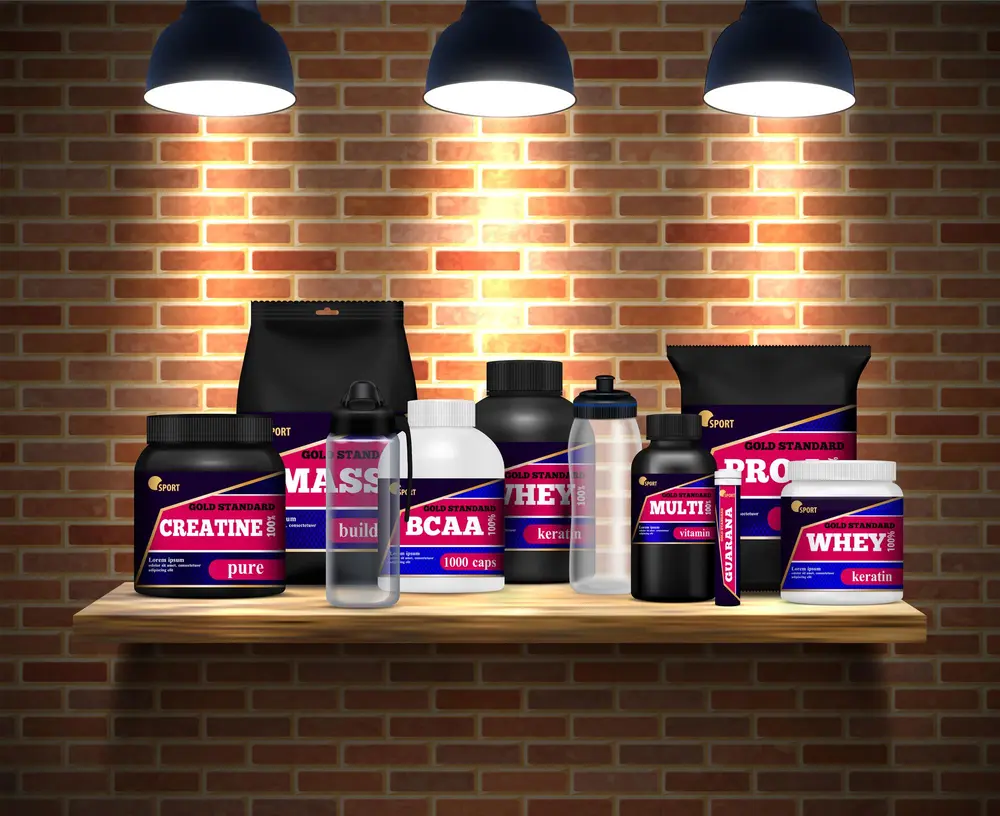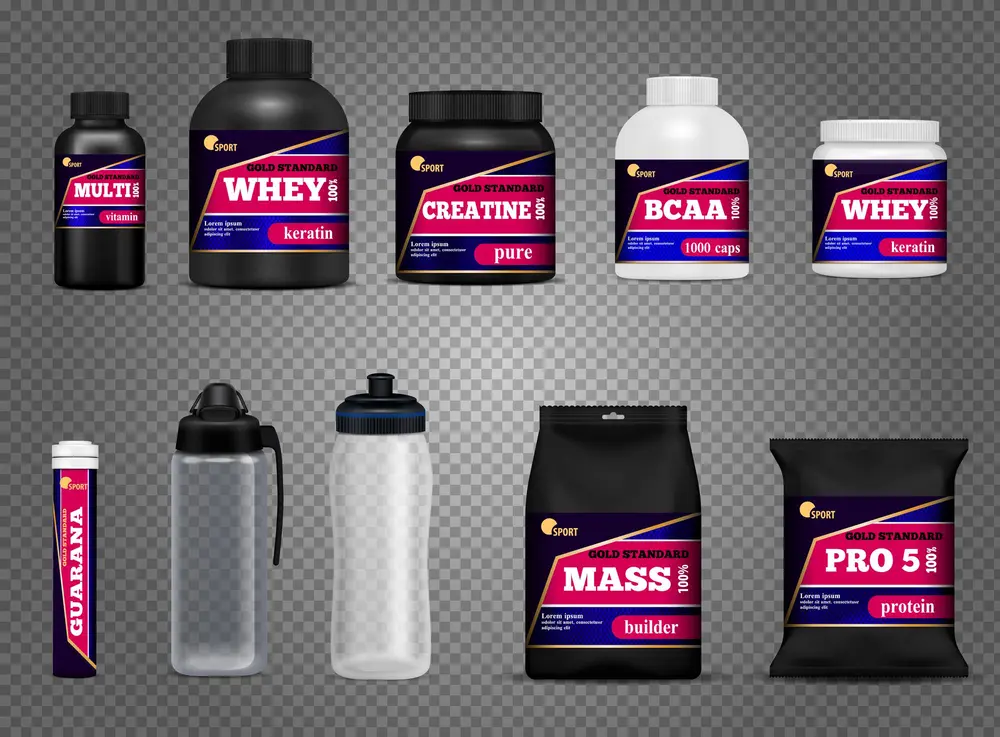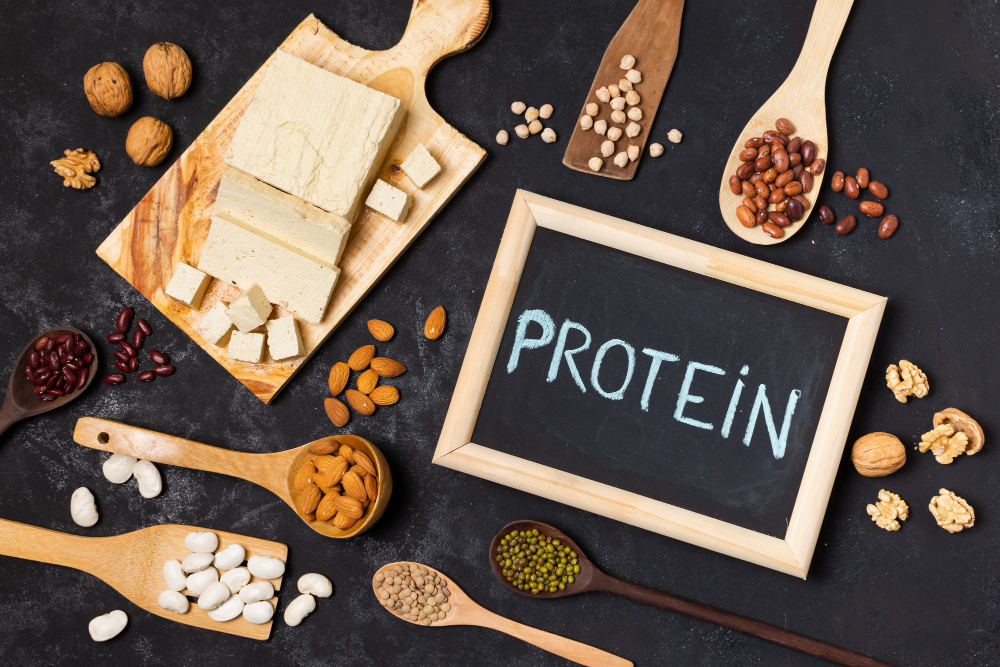Understanding different types of protein supplements is crucial to making an informed decision about your nutritional needs. Each type of protein supplement, such as whey, casein, or plant-based proteins, has its unique benefits and potential drawbacks. For instance, whey protein is quickly absorbed and ideal for post-workout recovery, while casein protein releases slowly, making it a good option for sustained protein delivery. Plant-based proteins are perfect for those following a vegan or vegetarian diet. By understanding these differences, you can choose the protein supplement that best aligns with your dietary preferences and health goals.
Protein plays a pivotal role in our bodies, acting as the building blocks for our muscles, skin, enzymes, and hormones. It is essential for growth, repair, and overall health. However, it is not always easy to get enough protein through diet alone, especially for those with specific dietary needs or fitness goals. This is where protein supplements come into play, offering a convenient and efficient way to increase protein intake.
Protein supplements are a popular nutritional aid, designed to provide an extra boost of protein in a convenient, easy-to-consume format. They come in various forms, including powders, bars, and shakes, and can be incorporated into a variety of diets. These supplements are not just for bodybuilders or athletes; they can also benefit vegetarians, vegans, and anyone else who may struggle to meet their protein needs through food alone.
The Role Of Protein In The Body

Protein is a fundamental component of every cell in the body and serves multiple functions that are crucial for our health and wellbeing. It is involved in the creation and repair of cells, making it essential for growth and development. Proteins also play a key role in the production of enzymes, hormones, and antibodies, which are vital for maintaining bodily functions, fighting off diseases, and regulating our metabolism.
One of the most recognized roles of protein is its contribution to muscle growth and repair. When we engage in physical activities, especially strenuous ones like weightlifting or high-intensity interval training, our muscle fibers experience microscopic damage. Protein helps repair these damaged fibers, leading to muscle growth and strengthening. Without adequate protein, our bodies cannot effectively build and repair muscle tissue, which can lead to muscle loss or slower recovery from workouts.
Beyond muscle health, protein has a significant impact on our overall health and wellbeing. It supports immune function, aids in nutrient transport, and is involved in the creation of hemoglobin, which carries oxygen throughout the body. Additionally, consuming enough protein can help control appetite and maintain healthy body weight, as it provides a sense of satiety. In essence, protein is not just about building muscles. It is a vital nutrient that supports numerous aspects of our health.
Why Protein Supplements?

The need for protein supplements often arises when it is challenging to meet protein requirements through diet alone. While whole foods should always be the primary source of nutrition, there are situations where supplements can provide a convenient and efficient way to increase protein intake. For instance, athletes or individuals engaged in intense physical training often require more protein than the average person to support muscle recovery and growth. Similarly, vegetarians and vegans may find it difficult to get enough protein from plant based sources alone, making supplements a useful addition to their diet.
Protein supplements can also be beneficial in specific life stages or health conditions. For example, older adults may need more protein to combat age-related muscle loss, while people recovering from surgery or illness might require additional protein for healing. Moreover, those aiming for weight loss may use protein supplements to help control hunger and preserve muscle mass while shedding fat.
However, it is important to dispel some common misconceptions about protein supplements. They are not a magic solution for muscle growth or weight loss; these outcomes require a combination of balanced nutrition, regular exercise, and adequate rest. Furthermore, protein supplements are not meant to replace meals or whole food sources of protein. They are a supplement to a healthy diet, designed to fill in the gaps when dietary intake is insufficient. Lastly, not all protein supplements are created equal. The quality can vary greatly, so it is essential to choose a product that is reputable, transparent about its ingredients, and suited to your specific needs and preferences.
Understanding Different Types Of Protein Supplements

Whey protein is a complete protein derived from milk. It is quickly absorbed by the body, making it an excellent choice for post workout recovery. Its benefits include promoting muscle growth, aiding in weight loss, and supporting a healthy immune system. Whey protein is ideal for athletes, bodybuilders, or anyone looking to enhance their muscle recovery and growth after exercise.
Casein protein, also derived from milk, is a slow-digesting protein. It gradually releases amino acids into the bloodstream, providing a sustained protein supply, making it beneficial for muscle recovery during sleep or long periods without eating. It’s a great option for those looking for a protein supplement to take before bed or during the day to maintain a steady protein supply.
Soy protein is a plant-based, complete protein that is a good alternative for those who are lactose intolerant or follow a vegetarian or vegan diet. It supports muscle growth, heart health, and may help reduce the risk of certain cancers. Soy protein is suitable for those looking for a plant-based protein supplement that provides all the essential amino acids.
Pea protein is another plant-based protein that is rich in essential amino acids, except for methionine. It is hypoallergenic, easy to digest, and can aid in muscle growth and heart health. Pea protein is a good choice for vegans, vegetarians, and those with common food allergies or sensitivities.
Hemp protein is derived from hemp seeds and is a good source of fiber and omega-3 fatty acids, though it is not a complete protein. It supports heart health, digestion, and provides a balanced source of energy. Hemp protein is ideal for those looking for a plant-based protein that also offers additional nutritional benefits like fiber and healthy fats.
Rice protein, extracted from brown rice, is hypoallergenic and easy to digest. While it is not a complete protein on its own, it is often combined with pea protein to provide all the essential amino acids. It can support muscle recovery and growth, making it a good option for those with digestive issues, allergies, or those following a plant-based diet.
How To Choose The Right Protein Supplement

Choosing the right protein supplement involves considering several factors. First, you need to identify your dietary needs and goals. Are you looking to build muscle, lose weight, or simply supplement your protein intake? The answer will guide your choice. For instance, if you are aiming for muscle growth, a fast-absorbing protein like whey might be ideal. If you are vegan, you’d opt for plant-based proteins like soy, pea, or hemp.
Individual dietary needs and restrictions also play a significant role. If you are lactose intolerant or have a milk allergy, you will want to avoid dairy-based proteins like whey and casein. If you are following a plant-based diet, you will need a vegan-friendly option. Additionally, consider the protein’s amino acid profile. A “complete” protein, containing all nine essential amino acids, is generally preferable.
The supplement’s nutritional content is another factor. Look for a product with minimal added sugars and artificial ingredients. Some protein supplements also contain added nutrients like vitamins, minerals, or fiber, which can be a bonus. Also, consider factors like taste, mixability, and cost, as these can affect your overall satisfaction with the product.
However, it is crucial to consult with a healthcare professional before starting any new supplement regimen. They can provide personalized advice based on your health status, dietary needs, and goals. Remember, protein supplements are meant to supplement a balanced diet, not replace whole foods or meals. They are a tool to help you meet your protein needs when you can not achieve this through diet alone.
Conclusion

In conclusion, protein supplements come in various forms, each offering unique benefits. Whey and casein proteins, derived from milk, are excellent for muscle recovery, with whey being fast-absorbing and casein providing a slow, sustained release of amino acids. Plant-based proteins like soy, pea, hemp, and rice offer alternatives for those with dietary restrictions or preferences, each with their own set of benefits ranging from heart health to digestion support.
Choosing the right protein supplement is a personal decision that should be based on your individual dietary needs, health goals, and lifestyle. Whether you are an athlete looking to enhance recovery, a vegan needing to supplement your protein intake, or someone simply wanting to support overall health, there is a protein supplement out there for you.
Remember, while protein supplements can be a convenient way to increase your protein intake, they should not replace a balanced, whole food diet. Always consult with a healthcare professional before starting any new supplement regimen. With the right knowledge and guidance, you can make an informed decision and choose the protein supplement that best supports your health and wellness journey.
Sources:
“Dietary protein for athletes: from requirements to optimum adaptation.” Phillips, S. M., & Van Loon, L. J. (2011). Journal of Sports Sciences, 29(sup1), S29-S38. This article discusses protein requirements for athletes and the role of protein in muscle adaptation to exercise.
“Protein – Which is Best?” Hoffman, J. R., & Falvo, M. J. (2004). Journal of Sports Science & Medicine, 3(3), 118–130. This article provides a comprehensive review of various types of protein and their implications for muscle protein synthesis.
“Protein intake and exercise for optimal muscle function with aging: recommendations from the ESPEN Expert Group.” Deutz, N. E., Bauer, J. M., Barazzoni, R., Biolo, G., Boirie, Y., Bosy-Westphal, A., … & Singer, P. (2014). Clinical Nutrition, 33(6), 929-936. This article discusses the importance of protein intake in older adults for maintaining muscle function.
“Position of the Academy of Nutrition and Dietetics, Dietitians of Canada, and the American College of Sports Medicine: Nutrition and Athletic Performance.” Thomas, D. T., Erdman, K. A., & Burke, L. M. (2016). Journal of the Academy of Nutrition and Dietetics, 116(3), 501-528. This position statement provides evidence-based recommendations for nutrition, including protein intake, in athletes.
“Protein quality assessment: impact of expanding understanding of protein and amino acid needs for optimal health.” Millward, D. J., & Layman, D. K. (2008). The American Journal of Clinical Nutrition, 87(5), 1576S-1581S. This article discusses the importance of protein quality in meeting dietary protein needs and promoting optimal health.
Read more here